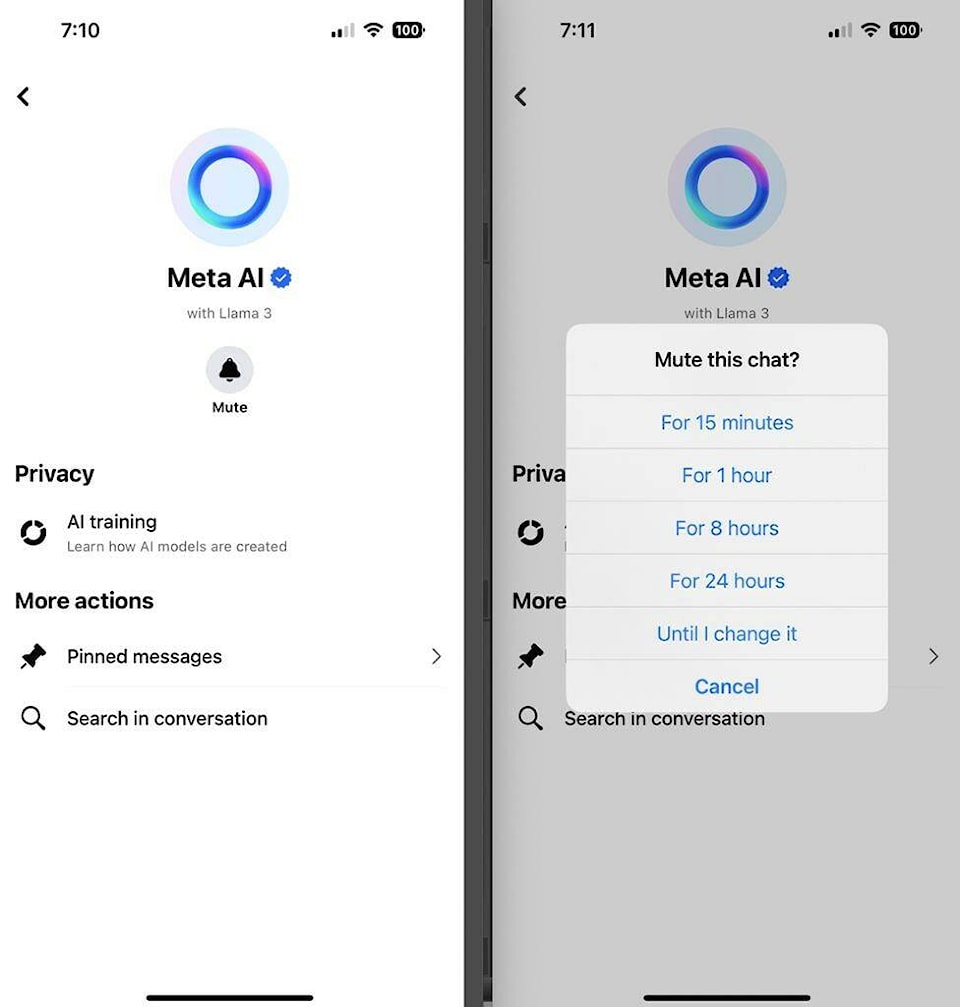
Meta asks again whether you want to feed your data to the Group’s AI. This has to do with the small blue circle: Meta AI permission
Meta AI permission: Many Facebook and Instagram users have just over a month to react. They are currently receiving emails from Meta, the company behind Facebook, Instagram, Whatsapp and Threads. Since Wednesday, Meta has been sending out a notice that users can object to their data being used by the company’s artificial intelligence (AI).
On May 27, Meta will then begin training with the data of all those users who have not objected by then. Data protectionists had tried to prevent this data collection.
Meta emphasizes that it will only use publicly shared posts, images and comments, and only those from adults. Private messages are just as taboo as posts by minors.
What does Meta want with the data?
Any reasonably coherent post on social media platforms is suitable for training the AI models. The better the training data, the “smarter” the AI and the more useful it is in practice. The fact that current AI software appears so human and chatbots can have reasonably meaningful conversations with humans is also due to the large amount of information that has taught them patterns about the world like a toddler.
Meta is using the data from its content platforms to improve its own AI “Meta AI”. This is a more or less intelligent chatbot assistant, recognizable by the blue circle that users have been seeing in Whatsapp or their Instagram message overview for a few weeks now, for example.
For Meta, it is the next stage of its data business: a popular free service – social networking via the platforms – provides data that makes the Group’s AI more powerful. This, in turn, is intended to improve the products. Meta earns money with ads on its platforms.
For Meta, it is the next stage of its data business: a popular free service – social networking via the platforms – provides data that makes the Group’s AI more powerful. This, in turn, is intended to improve the products. Meta earns money with ads on its platforms.
Why is Meta asking again (Meta AI permission)?
Last year, Meta had already set its users a deadline of June 25 to object to the use of their data. Consumer advice centers, among others, had issued a warning to Meta at the time and tried to prevent the collection of data. Their demand: Meta should only feed user data to the AI if the user has actively consented to the training – the so-called opt-in principle. Many users are too comfortable with the opt-out procedure that Meta is now pursuing. They tend to stick to their default settings – or are not even aware of the option to object.
EU data protection authorities also began to investigate the case and Meta subsequently paused the collection. Because of the debate, Meta held back the AI function with the circle in the EU for months. In the meantime, the European Data Protection Committee has clarified its requirements. A process in which data privacy advocates and companies like Meta also took a stand. Meta is convinced that it has prevailed, as the company is sticking to its original opt-out solution.
Hamburg Data Protection Commissioner Thomas Fuchs, who is responsible for Meta in Germany, explains: “I can well understand that users are concerned when all their images and texts shared on social networks are now fed into AI models. The only way to protect yourself here is to object in good time. If so, then now.”
How users can easily object to Meta AI permission
Users can object not only in response to an email from Meta, but also directly here in their Instagram account, here in Facebook or here in their Meta account.
Or in the Instagram app under Info>Privacy Policy, click on the magnifying glass (in the app) or (in the desktop browser) open the search field with CTRL+F, then enter “right to object” and select the right to object. There you will find the link to the objection.
Data Subject Rights for Third Party Information Used for AI at Meta
In Facebook, the objection can be found under: Settings and privacy>Settings>Privacy policy. Then search for “right to object”.
Anyone who has already objected does not have to do so again, explains Meta: “Meta will consider all objections already received, as well as new ones.”
